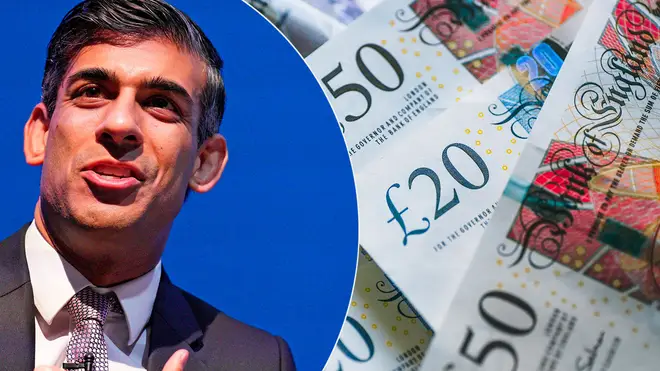
James O'Brien 10am - 1pm
24 March 2022, 12:44

Rishi Sunak confirmed in his spring statement he would rise the threshold at which you start paying National Insurance in a bid to ease the increasing cost of living - but what exactly does this mean for you? And how much will you be paying exactly?
The spring statement was delivered on March 23 2022 by the Chancellor of Exchequer Rishi Sunak who confirmed a number of measures were coming into place in a bid to help reduce the current cost of living.
Along with reducing fuel duty by 5p, he also confirmed income tax rates would be cut as well as increasing the threshold in which you pay National Insurance.
From July 2022, it was confirmed the NI threshold would increase from £9,568 to £12,570 meaning millions of people will pay less tax. In April however National Insurance rates will increase by 1.25%
Related article: Why is petrol so expensive? And when will fuel costs go down?
Related article: Cost of living crisis: Inflation rises by 6.2% and its highest level in 30 years
So what are the new National Insurance rates coming in April? And how will the new National Insurance threshold impact you in July?

From April 2022, workers, company owners and the self-employed, will all pay 1.25p more in the pound for NI.
The tax was increased to help fund social care in England and to help support the NHS following the coronavirus pandemic.
In 2023, the National Insurance rate will be reduced again to its current rate and the extra tax will continue to be collected as the Health and Social Care Levy.
As the NI rates increase in April 2022, in July, the earnings threshold at which you pay it will increase in a bid to help the rising cost of living.
From then, anyone earning £12,570 or less will not have to pay, and people earning under £34,000 will pay less in NI contributions than they did last year.
An employee earning more than that wage per year, will find themselves paying more overall.
Here's a breakdown on how much more or less employees will be paying in National Insurance:

Rishi Sunak defends National Insurance rise
National insurance is a tax on earnings paid by both employees, employers and the self-employed.
It was originally created in 1911 to provide funds for those who lost their job but is now more commonly used to pay for the NHS, benefits, maternity leave and statutory sick pay and state pension.